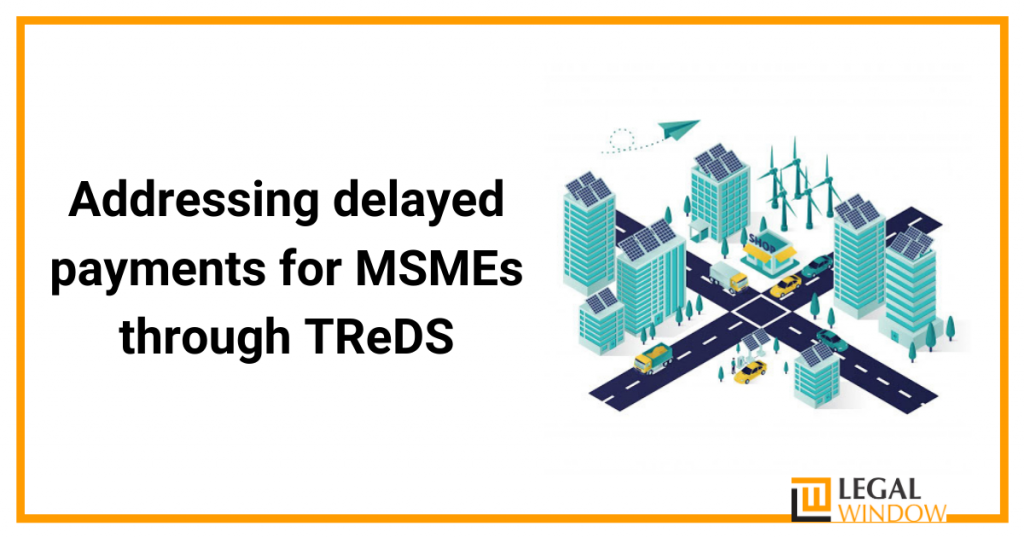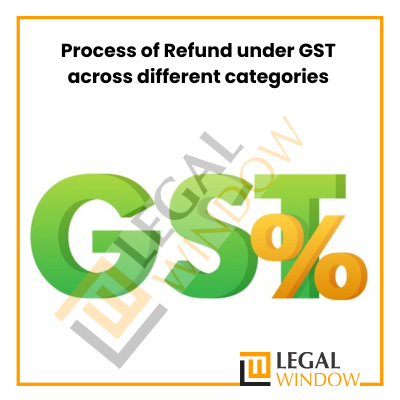Addressing delayed payments for MSMEs through TReDS
- August 10, 2020
- Startup/ Registration
To flatten the cash flow for MSME, Reserve Bank of India decided to set up an operating system known as Trade Receivable Discounting System (TReDS).MSME faces many delays in receiving the payments for the goods and services supplied by them, but the same can resolve by adopting TReDS.
Role of MSME in Indian Economy
In India, MSMEs contribute nearly 8% of the country’s GDP, around 45% of the manufacturing output, and approximately 40% of the country’s exports. It won’t be wrong to refer them as the ‘Backbone of the country.’
The Government of India has introduced MSME or Micro, Small, and Medium Enterprises in agreement with Micro, Small and Medium Enterprises Development (MSMED) Act of 2006. These enterprises primarily engaged in the production, manufacturing, processing, or preservation of goods and commodities.
MSMEs are an important sector for the Indian economy and have contributed immensely to the country’s socio-economic development. It not only generates employment opportunities but also works hand-in-hand towards the development of the nation’s backward and rural areas. According to the annual report by the Government (2018-19), there are around 6,08,41,245 MSMEs in India.
Through this blog, we would like you to discuss TReDS, and try to know how it’s helping MSME.

Meaning of TReDS
TReDS is an electronic platform for facilitating the financing / discounting of trade receivables of Micro, Small and Medium Enterprises (MSMEs) through multiple financiers. These receivables can be due from corporates and other buyers, including Government Departments and Public Sector Undertakings (PSUs).
Participants in TReDS
The direct participants of Trade Receivable Discounting System include
- MSME seller,
- Corporate and other buyers,
- Govt. departments,
- PSU’s and
- Financers including banks, NBFC’S and other institutions which are permitted by RBI.
TReDS provide the electronic platforms to all the above-mentioned institutions where together they all can facilitate, upload, accept, discount, trade and settle their invoice or bill of exchanges of MSME. All the participants will get linked to the common platform. After getting the approval from both buyer and seller, the financer (Banks, NBFC) would bid on invoices and then can make payment to the seller.
Working Mechanism of TReDS
Following steps take place during financing / discounting through TReDS:
- Creation of a Factoring Unit (FU) – standard nomenclature used in TReDS for invoice(s) or bill(s) of exchange – containing details of invoices / bills of exchange (evidencing sale of goods / services by the MSME sellers to the buyers) on TReDS platform by the MSME seller (in case of factoring) or the buyer (in case of reverse factoring);
- Acceptance of the FU by the counterparty – buyer or the seller, as the case may be;
- Bidding by financiers;
- Selection of best bid by the seller or the buyer, as the case may be;
- Payment made by the financier (of the selected bid) to the MSME seller at the agreed rate of financing / discounting;
- Payment by the buyer to the financier on the due date.
Note: A Factoring Unit (FU) is a standard nomenclature used in TReDS for invoice(s) or bill(s) of exchange. Each FU represents a confirmed obligation of the corporates or other buyers, including Government Departments and PSUs.
Existing Platforms of TReDS
The transaction processed under Trade Receivable Discounting System is without the recourse to MSME’s, which means that MSME vendor[1] will not be responsible for any nonpayment of the trade receivable amount from buyers. In this context, RBI issued a license to three TReDS platform M1xchange, RXIL, and A.TReDS.
Hon’ble Prime Minister Sh. Narender Modi in November 2018 announced that companies whose turnover is more than 500 Crore have to registered themselves on TReDS so that the cash flow can be smoothened in MSME’s.
Eligibility criteria to set up and operate the TReDS
Entities desirous of setting up and operating the TReDS should fulfil the following criteria.
- Financial Criteria
- Since the TReDS will not be allowed to assume any credit risk, its minimum paid up equity capital shall be Rs. 25 crore.
- The foreign shareholding in the TReDS would be as per the extant foreign investment policy.
- Entities, other than the promoters, will not be permitted to have shareholding in excess of 10 per cent of the equity capital of the TReDS.
- The overall financial strength of the promoters/entity seeking to set up TReDS would be an important criteria of assessment/selection.
- Due diligence of promoters
The entities and their promoters/promoter groups as defined in the SEBI (Issue of Capital & Disclosure Requirements) Regulations, 2009 should be ‘fit and proper’ in order to be eligible to operate as TReDS. RBI would assess the ‘fit and proper’ status of the applicants on the basis of their past record of sound credentials and integrity; financial soundness and track record of at least 5 years in running their businesses. RBI may, inter alia, seek feedback on the applicants on these or any other relevant aspects from other regulators, and enforcement and investigative agencies like Income Tax, CBI, Enforcement Directorate, SEBI, etc. as deemed appropriate.
- Technological capability
- The TReDS should have sound technological basis to support its operations. As such, the TReDS should, at the minimum, fulfil the following technological requirements.
- TReDS shall be able to provide electronic platform for all the participants.
- Information about bills/ invoices, discounting and quotes shall be disseminated by the TReDS in real time basis, supported by a robust MIS system.
- The TReDS shall have a suitable Business Continuity Plan (BCP) including a disaster recovery site.
- The TReDS shall have an online surveillance capability which monitors positions, prices and volumes in real time so as to check system manipulation.
Benefits of TReDS
TReDS provides benefits to buyer, seller and financier as follows:
Benefits to the buyer-
- With the registration on TReDS, the buyer can efficiently manage its cash flow.
- It ensures efficient payment cycles without any delay.
- It involves less paperwork and costs.
- More Transparency.
Benefits to the seller-
- TReDS provides the best discount rate due to the participation of Multiple Financiers in the auction.
- There is Efficient capital deployment
- The seller can get a receipt of funds on a reasonable time.
- It involves less paperwork and costs.
- TReDS is more helpful in Business growth due to improved liquidity.
Benefits to the Financer
- Financer can have access to a wider market.
- TReDS assures qualified instruments.
- It reduces the operational cost.
Conclusion
If we talk about today, only a few banks and NBFC’s are allowed to be the financer. Whereas to improve the market, and Indian economy, more and more participation from Individuals with high net worth is required. However, with the govt. Efforts in promoting the MSME sectors and its emphasis on the registration of Trade Receivable Discounting System growth in the MSME sector can achieve. With TReDS, MSMEs can ensure more effective capital management.
CA Pulkit Goyal, is a fellow member of the Institute of Chartered Accountants of India (ICAI) having 10 years of experience in the profession of Chartered Accountancy and thorough understanding of the corporate as well as non-corporate entities taxation system. His core area of practice is foreign company taxation which has given him an edge in analytical thinking & executing assignments with a unique perspective. He has worked as a consultant with professionally managed corporates. He has experience of writing in different areas and keep at pace with the latest changes and analyze the different implications of various provisions of the act.
Categories
- Agreement Drafting (23)
- Annual Compliance (11)
- Change in Business (36)
- Company Law (147)
- Compliance (88)
- Digital Banking (3)
- Drug License (3)
- FEMA (17)
- Finance Company (42)
- Foreign Taxation (6)
- FSSAI License/Registration (14)
- GST (116)
- Hallmark Registration (1)
- Income Tax (199)
- Latest News (34)
- Miscellaneous (164)
- NBFC Registration (8)
- NGO (14)
- SEBI Registration (6)
- Section 8 Company (7)
- Start and manage a business (20)
- Startup/ Registration (126)
- Trademark Registration/IPR (40)
Recent Posts
About us
LegalWindow.in is a professional technology driven platform of multidisciplined experts like CA/CS/Lawyers spanning with an aim to provide concrete solution to individuals, start-ups and other business organisation by maximising their growth at an affordable cost.








